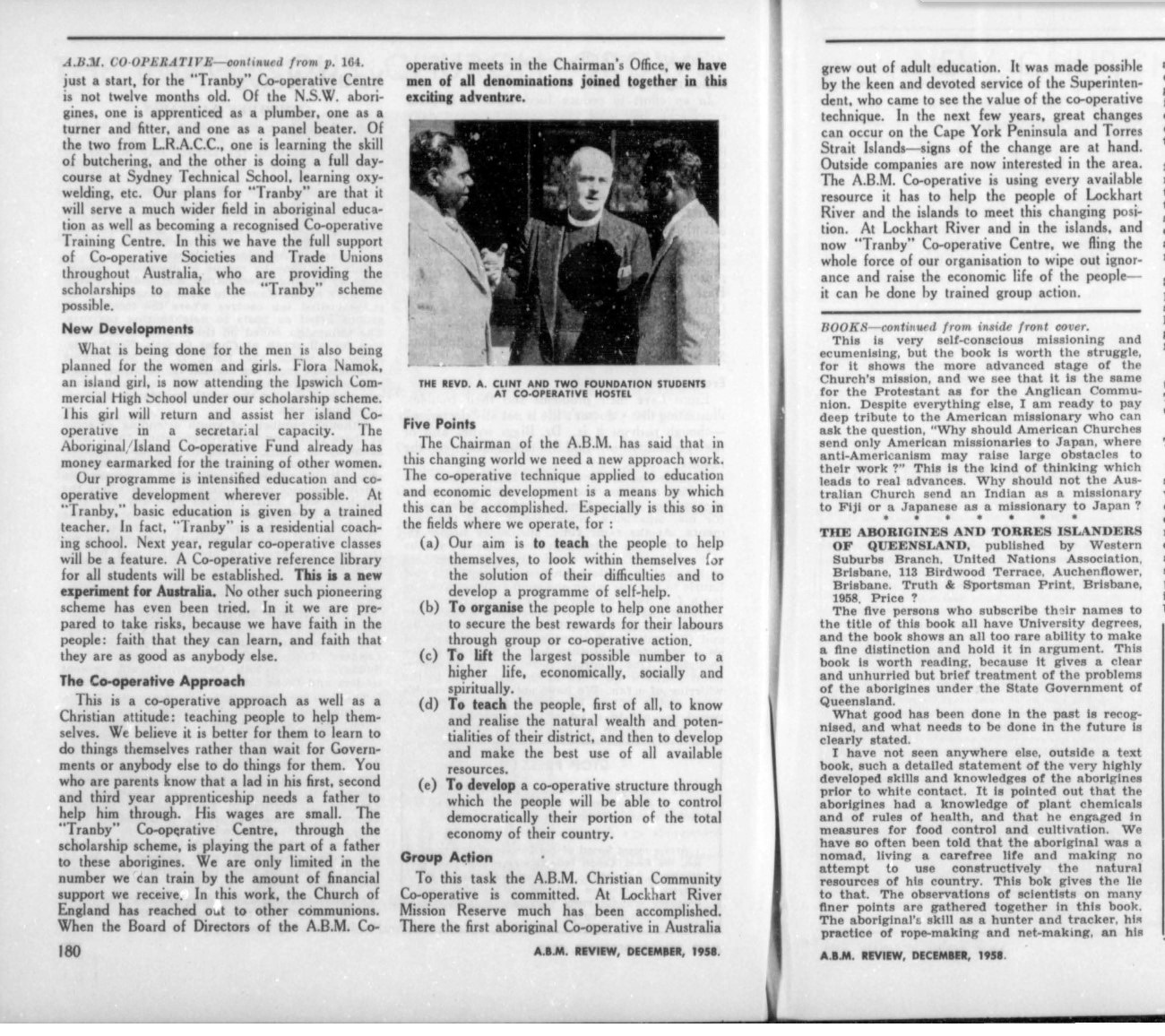From the Archives
The Rev’d Alfred Clint and the ABM Cooperative Movement
During the 1950s, ABM actively pursued a Cooperative movement in Australia. This was largely made possible by the work of the Rev’d Alfred Clint, a priest who had been radicalised by the poverty experienced by his own family. Clint had been appointed by Bishop Strong to Gona in New Guinea in 1948, where he walked from village to village organising cooperatives. The Cooperatives in New Guinea had grown “out of the desire of the native people for a ‘new way’ of life. It began as a spontaneous movement throughout the Territory soon after the war. The early beginnings can be traced to the teaching of a Mission Priest at Gona, the Revd. James Benson, who before the war taught the ‘Co-op. Way’ as a means of better farming and food supplies for the people. He was also alarmed at the price charged at the Trade Stores…”[1]
Forced back to Australia by ill-health, ABM appointed Clint Director of Christian Cooperatives in Australia and the Pacific in 1953. The aim was to work with people in Australia and the Pacific to develop cooperatives where people would work together, pooling resources and sharing benefits and in doing so, triumphing against the capitalist system that was engulfing people and sending many into poverty. As an expression of “God’s love in action” the cooperatives were also seen as a means of evangelisation. Clint’s work was largely funded by ABM supporters and partly by trade unions.
According to Brian Kyme and Jan Carroll[2], Clint helped establish cooperatives at the Lockhart River Mission in North Queensland in 1954, Moa Island in the Torres Strait (1956) and Cabbage Tree Island in NSW in 1959. He also “founded Tranby Co-operative College, a centre for training Aborigines to run their own co-operatives” in 1958 in Glebe, in a building donated by the Rev’d John Hope, Rector of Christ Church St Laurence in central Sydney.
Kyme assessed the work of ABM in forming these cooperatives thus: “Although the ABM Co-operative Department was quite short lived, the long-term outcomes have been remarkable.”[3]
These extracts from the ABM Review show how ABM, and particularly the Rev’d Alf, envisaged the Christian Cooperatives, their rationale, and their possibilities.
[1] ‘Message from the Revd. Alfred Clint’, ABM Review, 1 June 1953, p.87.
[2] In Brian Kyme and Jan Carroll, 2013, Grit and Grace, John Septimus Roe Anglican School, p.148
[3] Ibid. p.152.
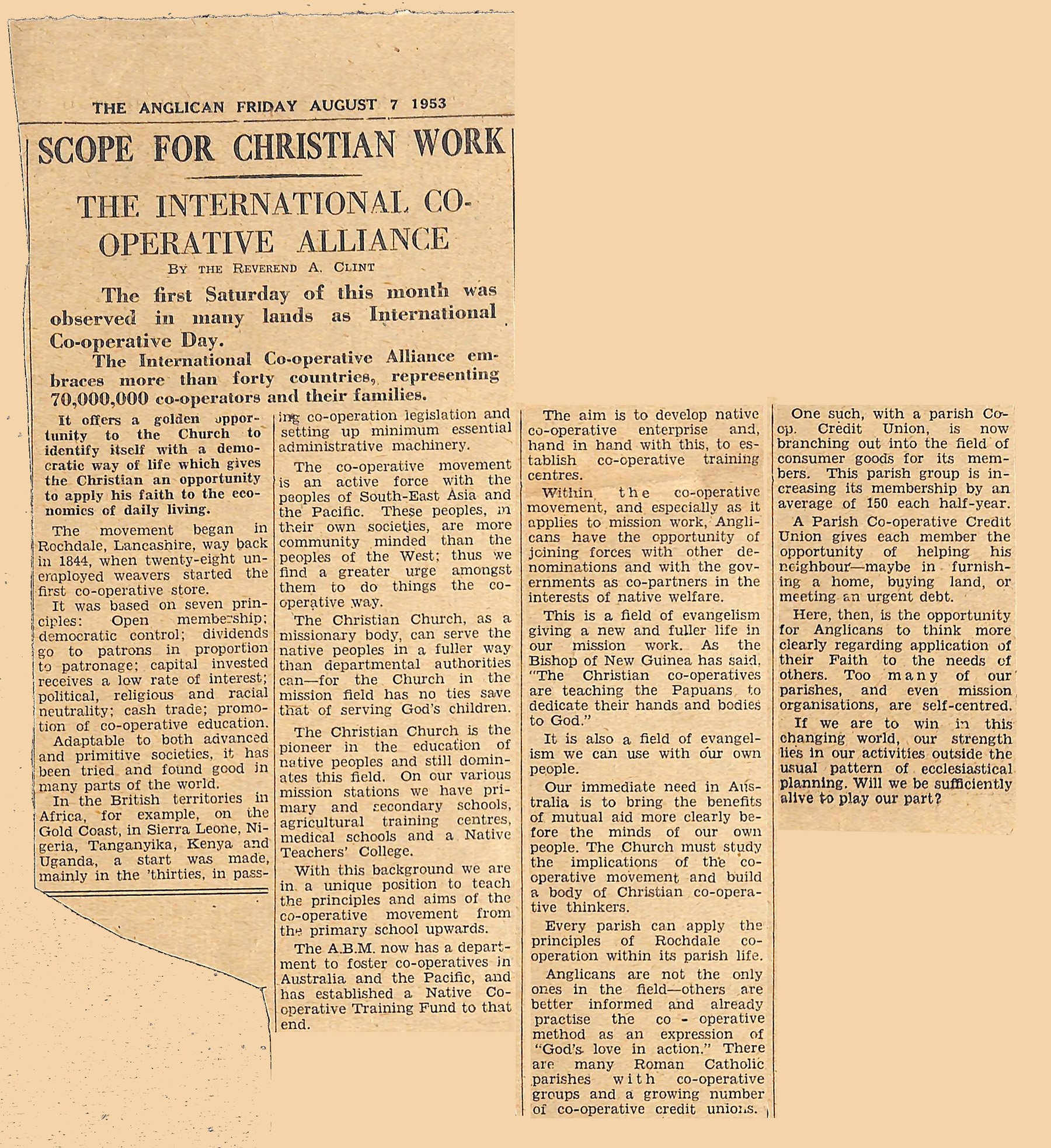
International Co-operative Alliance, The Anglican, Alf Clint 1953
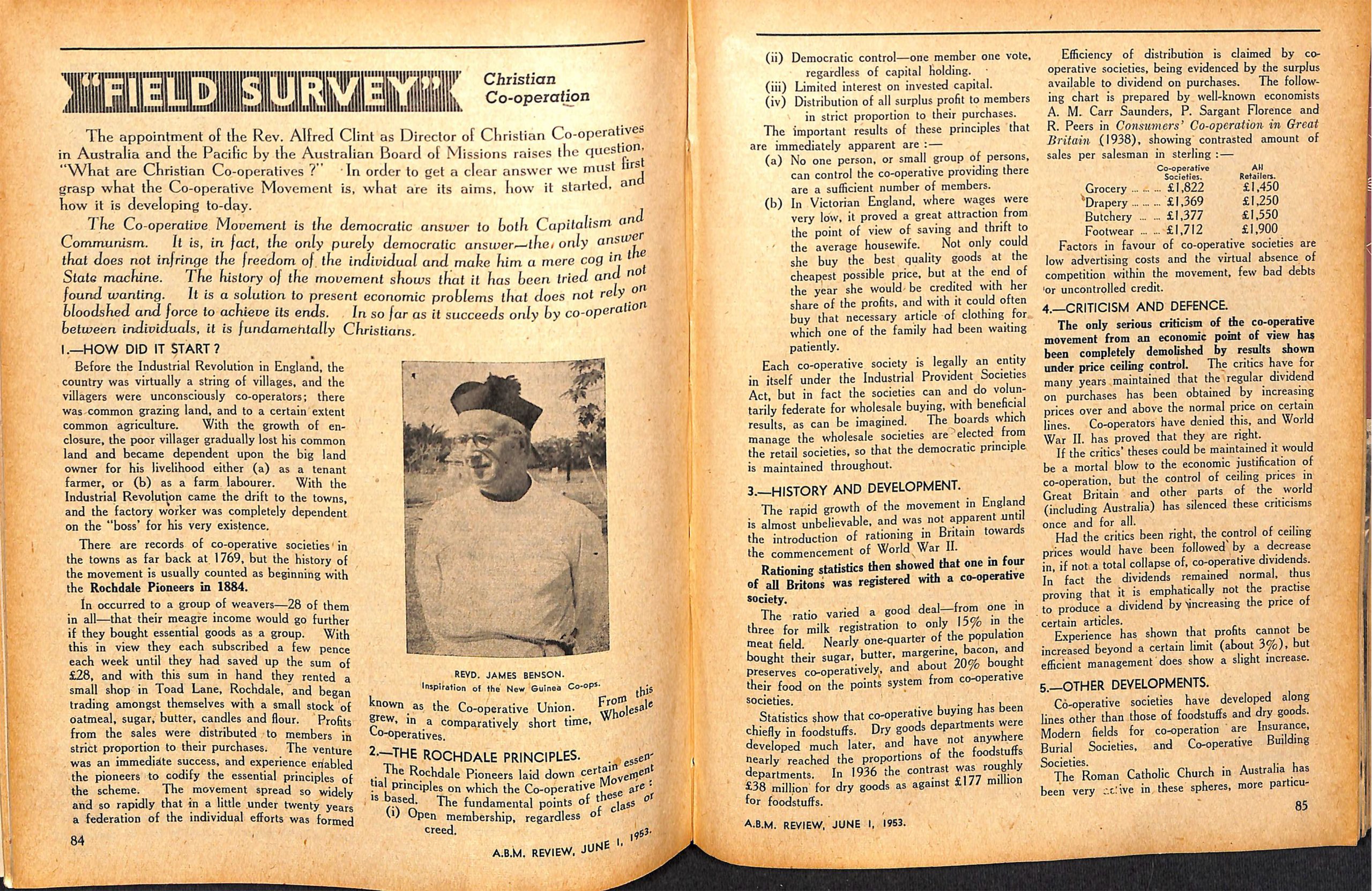
ABM Review June 1953- Alf Clint & the Co-Operatives page 1 of 3
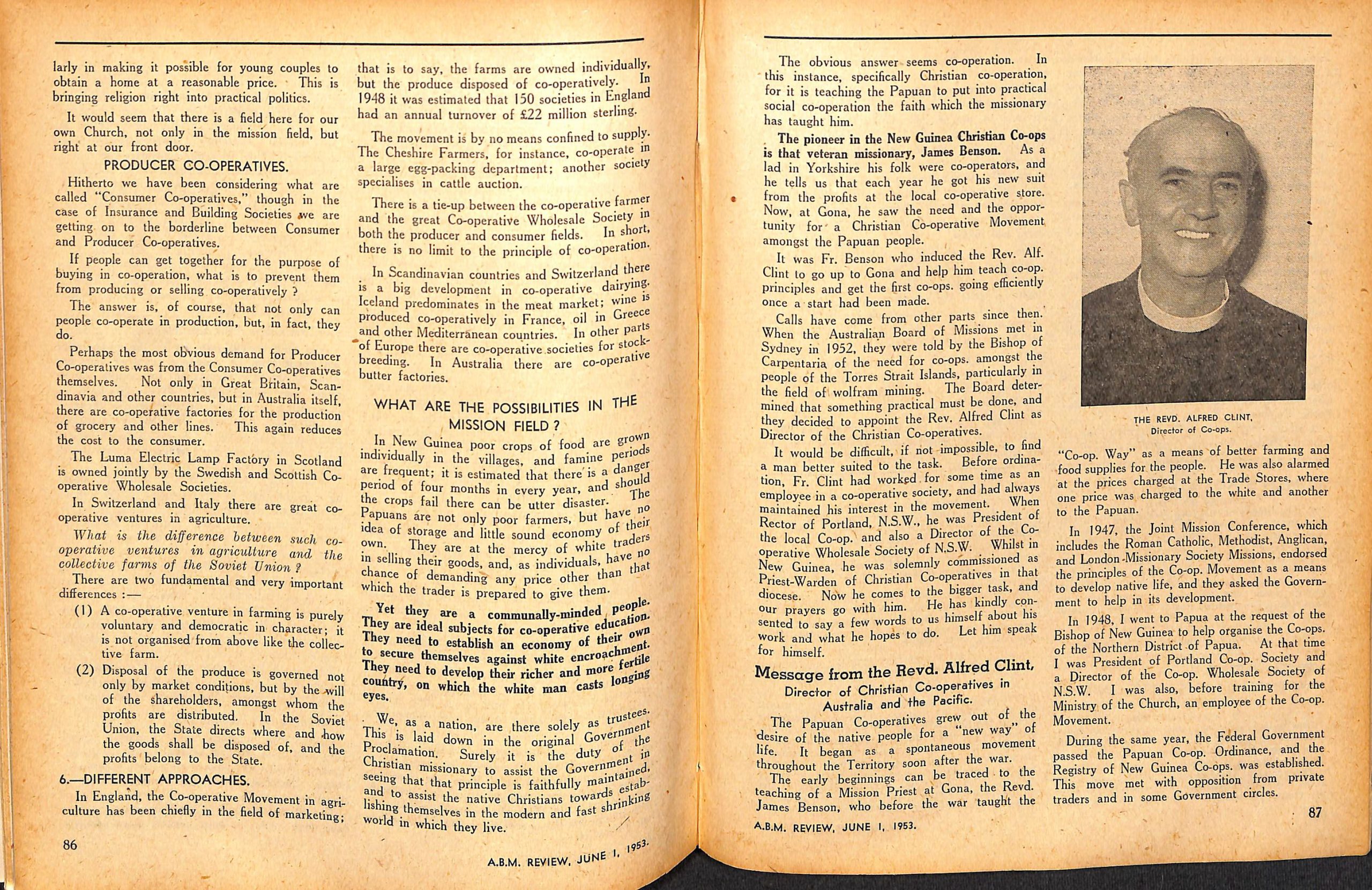
ABM Review June 1953 – Alf Clint & the Co-Operatives Page 2 of 3
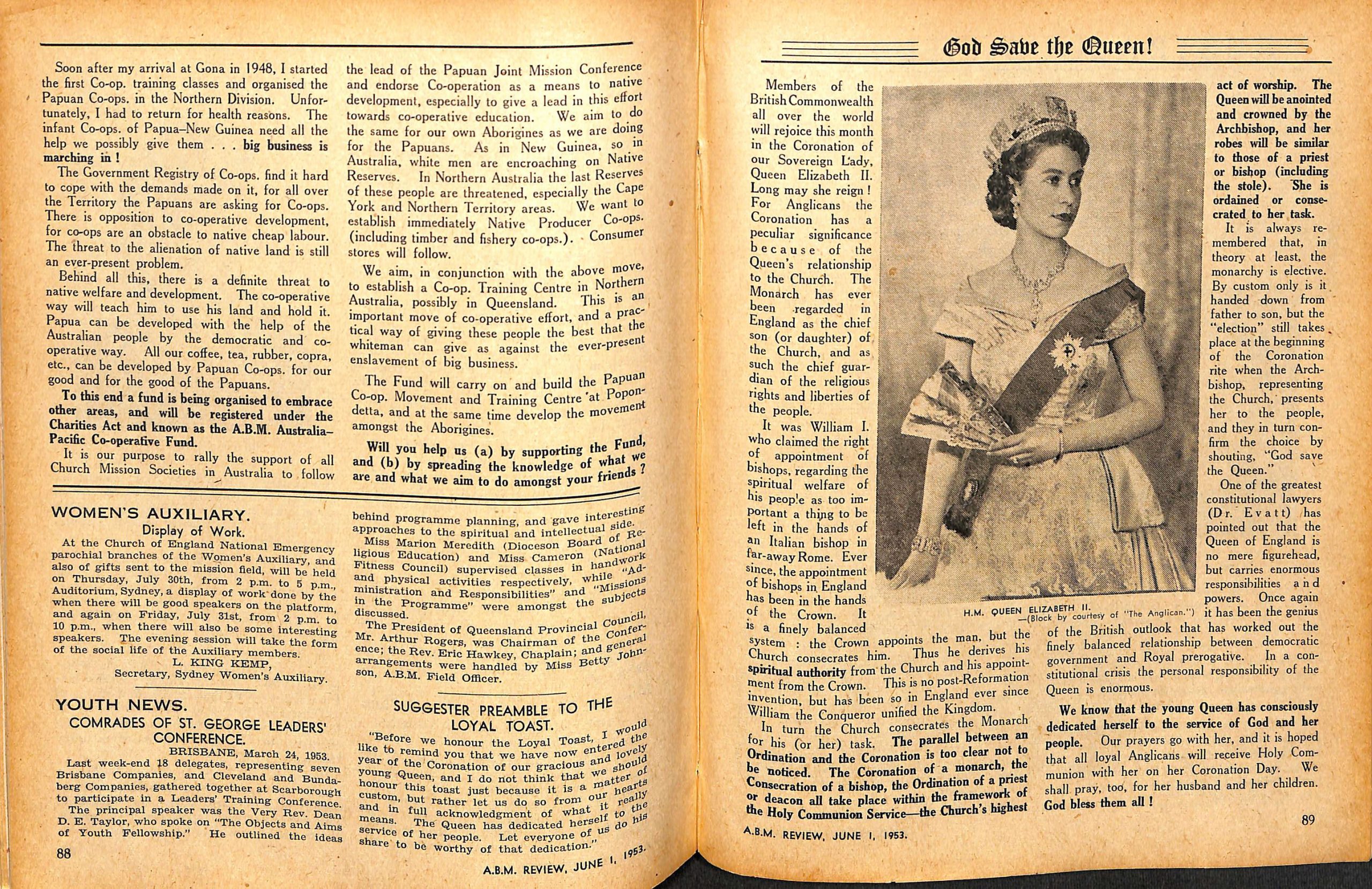
ABM Review June 1953 – Alf Clint & the Co-Operatives Page 3 of 3
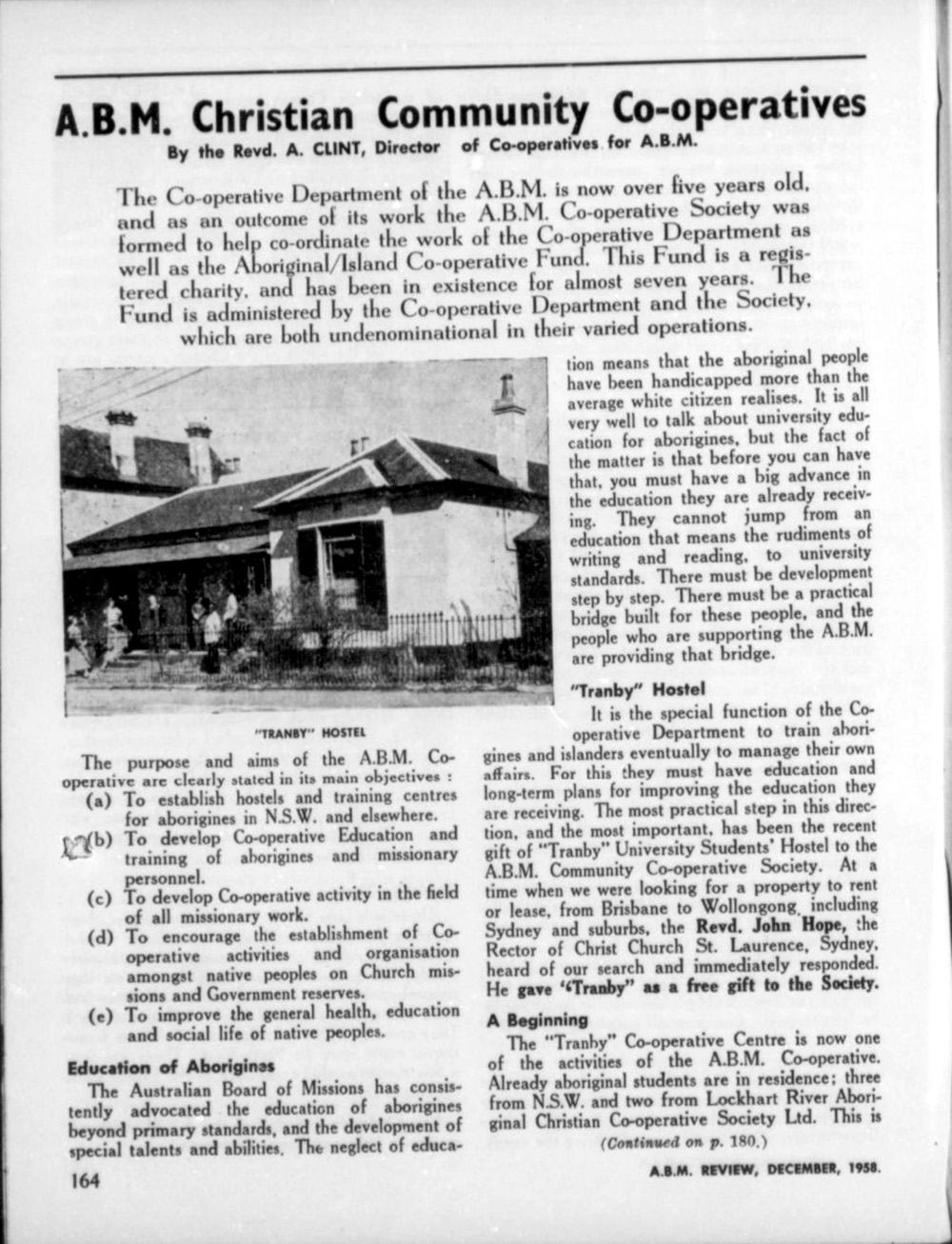
Christian Community Co-operatives ABM Review Dec 1958 page 1 of 2
